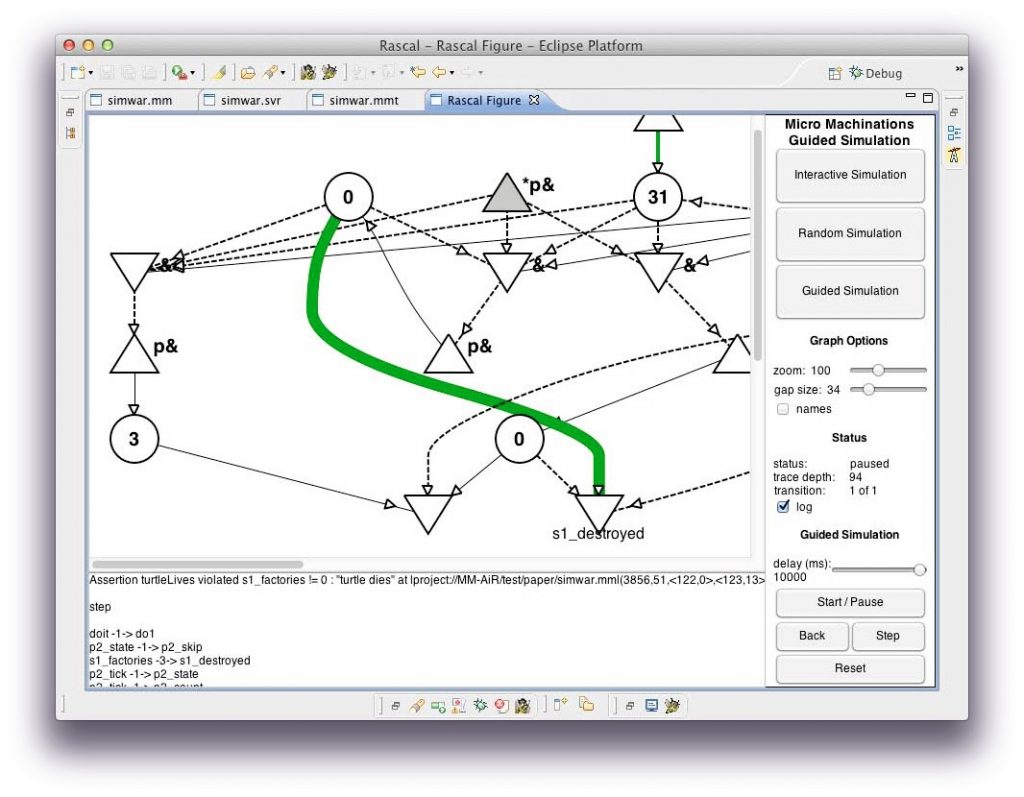The Automated Game Design project was a RAAK-MKB applied research project funded by the Dutch funding body SIA/NWO, co-financed by the HvA, research partners and business project partners. The project started in March 2013 and ran for two years, until May 2015, but was extended for three months (October-December 2015), to be able to apply unused project resources for (1) the development of course and training material (2) evaluation of these educational materials, and (3) refinement and dissemination of the project results. The final report was delivered in March 2016, and the resulting course on Automated Game Design was introduced in the summer of 2016 (see Education).
Events: Project Symposia and Conferences
In the course of the project, three project seminars have been organised by the HvA:
The first seminar, on 20 November 2013, at HvA Duivendrechtsekade, Amsterdam
The second seminar, on 17 September 2014, at CASA 400, Amsterdam
The third and final seminar, on 8 July 2015 at Volkshotel, Amsterdam
In addition, the HvA has presented project results at several conferences, including the Dutch Control Conference for game professionals, and several international conferences, including the Foundations of Digital Games Conference, the Procedural Content Generation Workshop, and several other AI-conferences in 2013, 2014 en 2015 (see Publications for details).
Three researchers of the HvA have also presented their project work at the symposium “What’s next for procedural content?”, organized in November 2014 by ITU Copenhagen, about the future of procedural content generation in games.
What became apparent at some of these events was that the HvA seems to be uniquely positioned by the strong collaboration and interaction between researchers with professional game designers from the Dutch game industry.
Product: Ludoscope
Ludoscope originated from Dormans’ work on engineering emergence, and modelling game design in terms of model transformations. In the Automated Game Design project, this work was extended by Daniël Karavolos et al., who addressed how to implement tools using these ideas, in order to support a game designer in a mixed-initiative setting. The idea behind this is to generate game levels for a platform game by first drawing a sketch of the space and a conceptual idea of the mission, and from this, iteratively refine the level design using model transformations by the computer, which are controlled, inspected, and if desired, edited by the human designer.
Product: Machinations
Machinations is a framework for formal modelling of game mechanics, which was introduced to the field by Adams and Dormans’ book entitled “Game Mechanics”. Within the Automated Game Design project, researcher Riemer van Rozen worked on formalizing this approach in his work on Micro-Machinations, created the necessary groundwork as a basis for live adaptation of a game’s mechanics, and created a design assistant which suggests other design patterns for a particular game written with Micro-Machinations, so that a game designer can easily adapt the game mechanics.
Product: workshop game storytelling in open world games
As an extension of the automated game design research, Joris Dormans and Karel Millenaar came up with a workshop to generate ideas on how to design interesting structures to meld storytelling and open world games. The workshops have been given several times at the minor game design of the HvA, the play design course at Interactive Performance Design of the HKU, and in 2015 it was given at SxSW. At this time it is being developed as game design prototyping tool.



